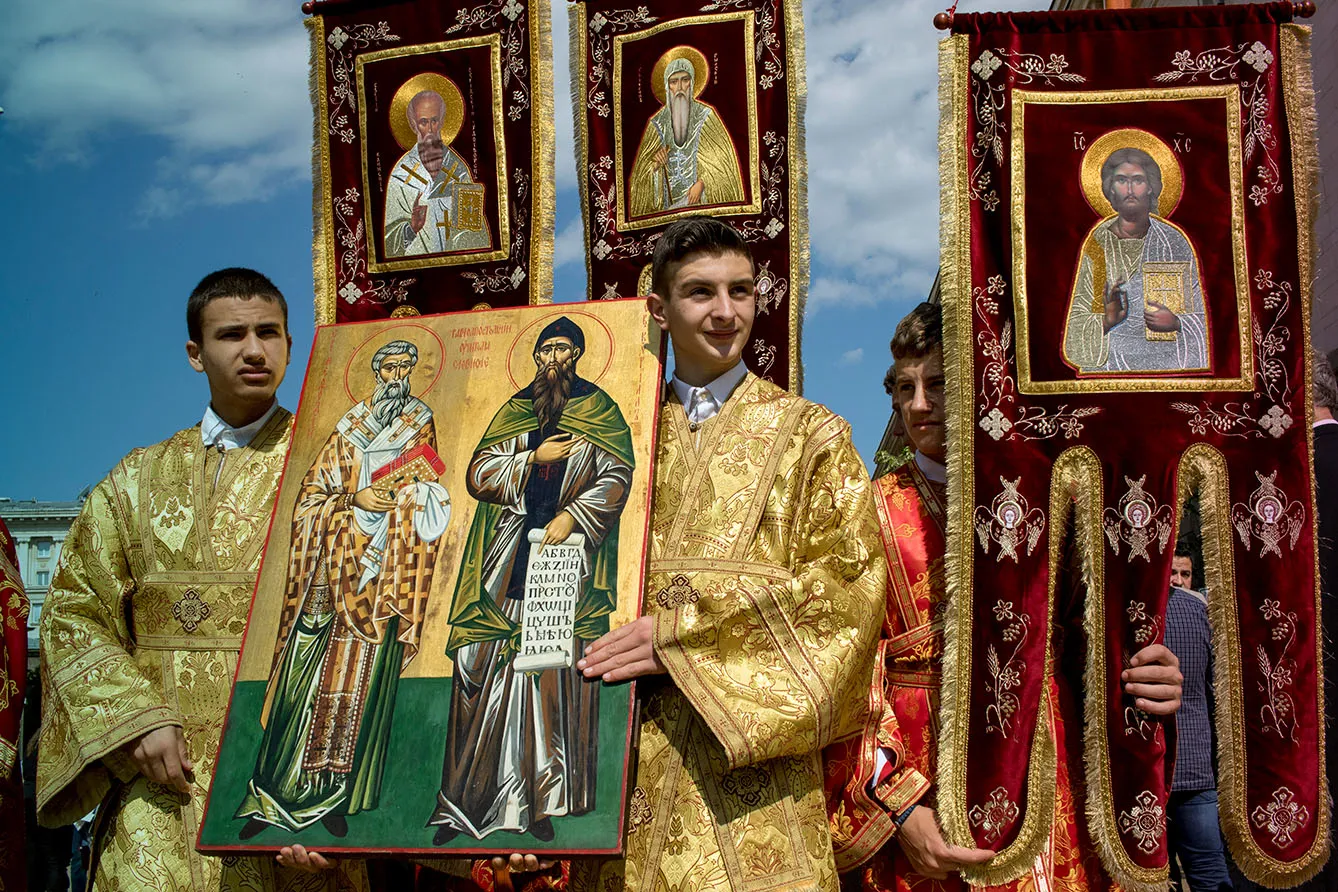With palpable influences in its vocabulary from Greek and Turkish, the Bulgarian language, already featuring a somewhat different grammar than other members of the Slavic language group, likes its separate spotlight. Add to this a hard pronunciation, another standout in the Slavic group of languages, and it’s easier to understand why even Slavic language speakers might be struggling a bit while trying to understand Bulgarian.
As Bulgaria gets ready to celebrate its biggest national holiday, the Day of the Holy Brothers Cyril and Methodius, of the Bulgarian alphabet, education and culture, and of the Slavonic literature marked on 24 May, we asked five Bulgarians working with words on everyday basis about their most favorite and distinctively Bulgarian (read: hard to spot in other Slavic languages) word.
Here’s what they’ve got to say:
BLAGODARIA
Dr. Evelina Zdravkova, Ph.D., University of Library Studies and Information Technologies
“Thank you,” blagodaria in Bulgarian, is a very important word for me. It has existed since ancient times. The word works wonders. Bulgarians also say “Merci,” but blagodaria means to bestow goodness in Bulgarian. It’s a miraculous word, quite literally. Giving thanks is a civilizational achievement that modern philosophy should embrace. In other words, the new rules for living well should be based on a sense of gratitude, and increasingly, we should fill the word “thank you” with meaning. Let’s start by learning it in another language. Bla-go-da-ria.
BAGRA
Prof. Rostislava Todorova-Encheva, lecturer at the Department of Visual Arts at The Constantine of Preslav University of Shumen
My word is “bagra,” the poetic way to say colors in Bulgarian. It is important for me because I am an artist. I see the world in colors or bagri in Bulgarian. Everything in life can be described and experienced through dyes, and that’s what I’m trying to do through my work.
KOPNEZH
Tatiana Eneva, teacher
I love the word “longing.” Not only because of its poetic sound and associative connection with the work of the wonderful Bulgarian poet Nikolai Liliev. This word means the human aspiration for something beautiful and sublime. We lift our spirits on our toes to touch it. And this impulse makes us human.
POSTOYANSTVO
Nikolay Penchev, writer, editor-in-chief, “Bulgaria Today”
Consistency, postoyanstvo in Bulgarian, is a very important word for me. Because it’s easy to start doing different things, but even if you reach a certain level, it’s much more important to be able to continue in the same way and stay where you’ve reached or build on it. If you really want to do something, you just have to persevere, and I believe in the end there will always be a result. There’s a catch, and that’s that perseverance is a very tricky thing because, at some point, it’s hard to keep going. Because what you do, no matter how interesting, becomes routine and mundane. That’s when perseverance must kick in to be able to continue on the path that one has taken. If one wants to achieve results, of course!
BANITSA
Neli Dimitrova, former teacher and poet with 13 published poetry collections and two books
“Banitsa,” the Bulgarian word for the traditional phyllo dough cheese pastry one can spot all over the Balkans, is my favorite word. I went even a bit further and dedicated a little poem to that word. Here it is, in a loose translation:
With pie and coffee,
I fly with the birds in the sky.
Friend, if you come to Bulgaria,
I will make you a pie.
And if you smell it,
your heart will sing.







